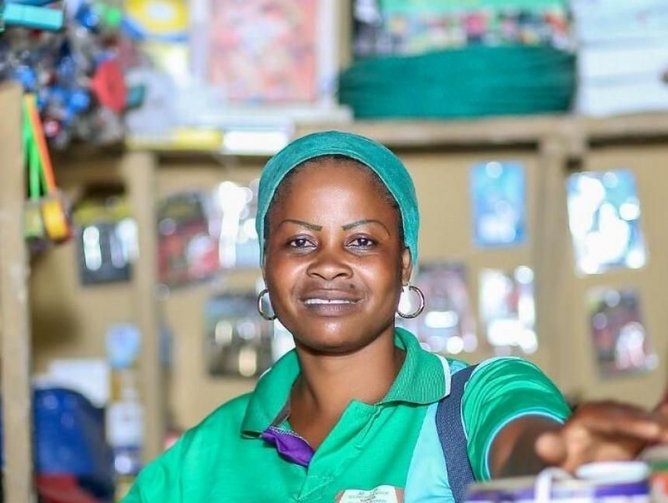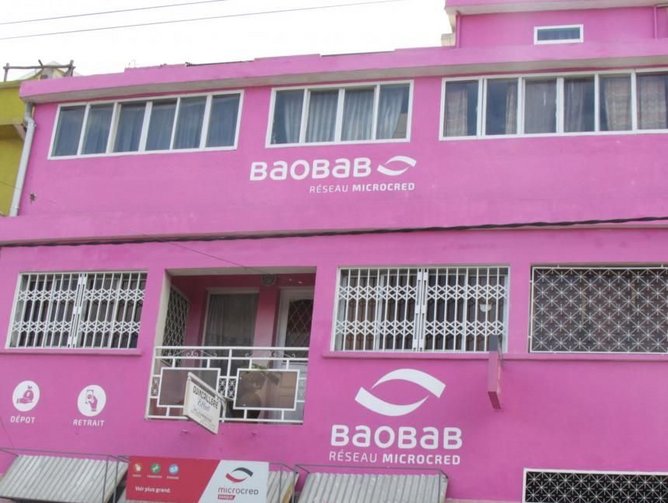How Microcred is using technology to improve Africa’s payments sector
We spoke with Microcred Chief Innovation Officer and CTO Denis Moniotte regarding the digital transformation of the company, designing innovative products and integrating first class technologies to provide financial inclusion for all.
Microcred has come a long way from its humble origins, providing financial support to 575,000 clients and companies who are excluded from loans within a traditional brick and mortar setting. Aligned with the company’s operations to deliver quality customer service is Chief Innovation Officer and CTO Denis Moniotte, who has been behind the construction of a new distribution network in Senegal and Madagascar, and is developing Microcred’s products and services to support an ever-growing customer base.
“We were addressing customer needs differently a few years ago, and we will still be addressing it differently in a few years from now,” reflects Moniotte. He explains that the company receives loan applications from clients excluded from traditional banks for a number of reasons, which ranges from the loan SME’s can afford is too small, or there is no paper trail. “Even when the amount is acceptable, the bank will want to see paperwork documenting income, tax returns etc., and many clients don’t have that,” he says. “They just run the business and don’t maintain any books,” leading banks to automatically reject them. Microcred aims to eliminate fake promises by truly delivering outstanding services to underbanked populations. Microcred is a commercial company, or what Moniotte calls a double bottom line business. “We are a social business,” he adds. “We are a commercial company and have to be profitable, but what happens to our clients is the key driver of our value creation.”
Building new products
To ensure Micocred builds products for customers which are both significant and practical, the innovation team spends a significant portion of time listening to clients and liaising with design researchers to create ideas for future products. This enables them to build prototypes and undergo pilot programmes for approximately four months, where products are further refined and then rolled out throughout the company’s core business model. This process also supports Microcred and helps the company understand how clients have previously managed without financial support. Dedicated staff members visit SME’s to see whether clients’ businesses are viable, cost effective and have the ability to reimburse a possible loan.
This emphasis on building customer relationships and developing new products has enabled the implementation of strong governance, policies, economics of scale and the centralisation of vital functions within Microcred’s infrastructure. Moniotte is clearly passionate about reaching out to individuals who have not previously had access to traditional financial services through these developments, as 85 percent of the population in areas the company operate are underserved by the finance industry. Although targeting what Moniotte calls “a handful”, Microcred builds around 40 branches per country and 50,000 active borrowers who all highly value Microcred’s products and services.
To ensure a seamless delivery of services, Microcred extracts data from its platform overnight, where proprietary algorithms support the establishment and eligibility for clients who wish to receive automated decision loan products. Moniotte explains: “Each day, we determine for every client, ‘from this morning, according to the past behaviour, this client, on this specific product, is eligible for X amount.’” The client is then able to take a pre-approved loan from their local agent. Such developments have therefore enabled Microcred to make processes much more relevant and accessible for clients.
Personalised tools and products
Whilst Africa remains a “cash based society”, Microcred has to build a ubiquitous distribution network so clients can access their finances easily through bank agents, such as at grocery shops, pharmacies or petrol stations. Moreover, the transformation of Microcred’s IT infrastructure has enabled clients to now gain freedom of choice and flexibility. Clients are automatically given an electronic account, where personalised tools and a centralised management system enables the company to cater to each client’s specific financial needs and access information through one core system.
Microcred’s digital transformation also incorporates the implementation of strong device management on its Windows and mobile devices. The company utilises biometrics to combat fraud, alongside the use of Watchguard for increased security. Additionally, the company’s removal of admin rights across the board has allowed them to support all devices remotely. Other embedded technologies within core operations include Google’s corporate document email system, Zendesk for ticketing and Optitune as its Windows device management tool. All of these tools have become first-class technologies which are highly effective in Africa.
With its client base in mind, over a thousand commercial officers at Microcred now deliver seamless loan applications through the use of tablet devices, where photographs of documents can be taken, simplifying the process. The development of a smartphone app is also a customer-focused innovation Microcred is proud of, which will work without a data connection. “The number of smartphones in Africa is rising,” adds Moniotte, “but many people who have a smartphone don’t have constant access to 3G or 4G, they have really limited access.” The company’s launch of SMS based service Baobab was also named Best African Retail Company in 2016, enabling clients to gain confirmation for every transaction. There are now more than 800 Baobab service points in Madagascar and Senegal. Moniotte adds: “It’s about understanding how we can put out digital products, digitise our business and channels whilst serving clients sustainably.”
However, Moniotte is aware that the company is unable to build such innovative products and platforms alone. A partnership with Software Group was key to have a technology that supports the innovation, as it has allowed to build tailored digital user experiences. “They are quite excited by our ability to innovate, how close we are to our clients and the ideas that we come up with,” explains Moniotte. “We are on a journey to create a very different kind of business in terms of how it can be valued by the market.”
Future growth
Microcred has taken approximately five years to grow, amongst continual challenges of training 3,000 employees around changing rules and regulations. This is in a sphere of increasing competition, with the challenge of new players and startups which have become established in the fintech industry. However, Moniotte explains that being a “one stop shop” for clients has repeatedly given Microcred an edge, stating that “the repayment rate banks receive from clients is also defined by how much the client wants to stay in relationship with the bank.” If all companies do is provide lending services, he explains that they will more likely default on repayments, as there is no relationship to lose for the borrower.
The implementation of new technologies and digitisation of services has enabled Microcred to scale up and become increasingly sustainable by increasing efficiency and reducing costs. It is a company that focuses on its people and its clients, with significant expertise on the ground, and is now home to vast numbers of branches and a reputable brand name. The company will continue to provide a multitude of services and digital solutions, improving services through digital innovations, which will enable clients to gain increased accessibility alongside traditional services. Now such technologies have been established, replication and future growth in bringing key products to market has become a real possibility. Microcred’s digital journey has spread across the whole organisation to transform the company into a digital bank with a local presence.





